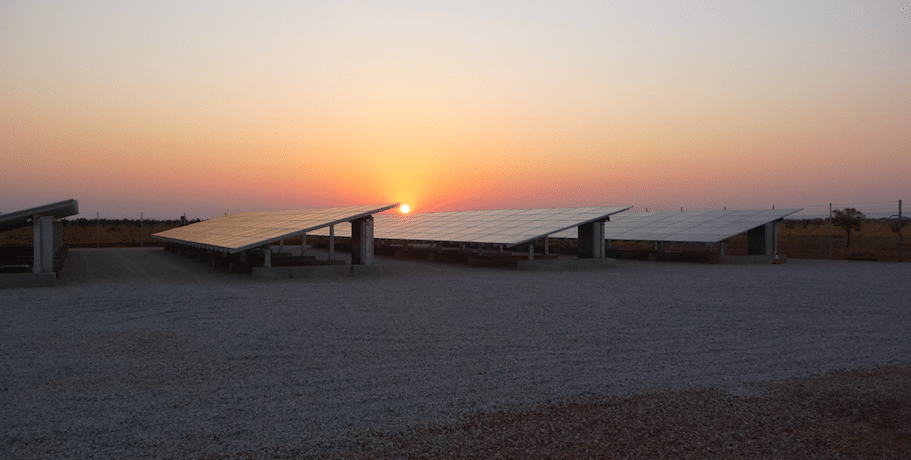ARENA said on Friday it had awarded $2.6 million in funding to the project, which will utilise solar and renewable hydrogen generation and storage to provide 526 MWh of dispatchable renewable electricity, enough to power the equivalent of 100 residential homes in the remote community with a population of less than 1,000.
The plant will comprise 704 kW of solar that will power a 348 kW electrolyser with accompanying compression and storage and a 100 kW fuel cell that can be used to deliver electricity when it is needed. The plant will be connected to the Denham hybrid power station system, which is currently powered by a combination of diesel and wind.
Horizon Power CEO Stephanie Unwin said the aim of the project was to explore the technical capability of renewable hydrogen as a dispatchable power source in remote power systems and would allow the state government-owned utility to test and improve the competitiveness of the technology.
Unwin said the microgrid, initially announced in January, would also help illustrate how best to integrate and deploy the technology into remote diesel microgrids, common across regional Western Australia.
“This plant will demonstrate how hydrogen can reliably produce power for our towns currently dependent on diesel fuel power systems and allow us to transition our network away from higher-emission generating sources and meet our target of no new diesel generation systems from 2025,” she said.
“This technology has the potential to be an environmental game-changer for many remote towns in Western Australia and other similar locations around Australia, and allow greater uptake of reliable cleaner, greener renewable energy sources in the future.”
If the project is successful, Horizon Power will look to scale up the strategy with increased hydrogen and solar penetration and replicate the technology in other remote power systems across its portfolio.
Technology put to the test
The CSIRO’s National Hydrogen Roadmap has highlighted remote-area power systems as an early end use for hydrogen due to the high-cost alternative of conventional energy sources in remote areas and the Denham project is expected to provide a reference case for remote power systems in other states and territories, including Queensland and the Northern Territory.
ARENA CEO Darren Miller said the project would be a great test case for assessing the potential for renewable hydrogen to displace diesel for energy generation in remote communities right across Australia.
“Remote and off-grid communities like Denham suffer from high energy costs due to costly diesel-based energy generation systems. The potential for these communities to generate, store and use their own renewable energy could simultaneously reduce costs and reduce emissions without sacrificing the reliability of energy supply,” Miller said.
“Clean hydrogen could be a major export industry in the future, but in the near term we can utilise renewable hydrogen for domestic purposes and we’re excited to see how Horizon Power’s first-of-a-kind project could transform remote area power systems into state-of-the-art renewable energy hubs.”
Denham has been chosen as the site for the project due to its close proximity to quality wind and solar resources, availability of land and access to water. Horizon Power said there was also a need to find a suitable replacement for the existing ageing diesel power station.
Construction of the renewable hydrogen plant is expected to commence in August next year and the microgrid is set to be commissioned by December 2021.
The project is being financed in part by ARENA, which on Friday announced $2.6 million in funding. The project is also receiving $5.7 million from the Western Australian government’s Recovery Plan, including $1 million from the WA Renewable Hydrogen Fund.
This content is protected by copyright and may not be reused. If you want to cooperate with us and would like to reuse some of our content, please contact: editors@pv-magazine.com.




By submitting this form you agree to pv magazine using your data for the purposes of publishing your comment.
Your personal data will only be disclosed or otherwise transmitted to third parties for the purposes of spam filtering or if this is necessary for technical maintenance of the website. Any other transfer to third parties will not take place unless this is justified on the basis of applicable data protection regulations or if pv magazine is legally obliged to do so.
You may revoke this consent at any time with effect for the future, in which case your personal data will be deleted immediately. Otherwise, your data will be deleted if pv magazine has processed your request or the purpose of data storage is fulfilled.
Further information on data privacy can be found in our Data Protection Policy.